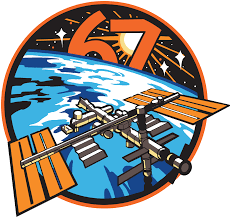The International Space Station: A Hub of Scientific Innovation

Introduction
The International Space Station (ISS) represents a remarkable achievement in international collaboration and scientific advancement. Orbiting Earth at an altitude of approximately 400 kilometers, the ISS has been a pivotal platform for research in various fields, including biology, physics, and Earth sciences. Launched in 1998, it has become a symbol of what countries can accomplish together in the pursuit of knowledge and exploration.
Recent Developments
As of late 2023, the ISS continues to inspire and facilitate groundbreaking research. In a recent experiment, astronauts aboard the ISS conducted studies on the growth of protein crystals in microgravity, which has implications for drug development and disease treatment. Furthermore, the ISS is a critical part of NASA’s long-term plans for space exploration, serving as a stepping stone for future missions to the Moon and Mars.
In addition, with the ongoing international agreement for its operation, the ISS now includes contributions from space agencies in the United States (NASA), Russia (Roscosmos), Europe (ESA), Japan (JAXA), and Canada (CSA). Each agency brings unique expertise and technology, enhancing the collaborative nature of the ISS.
Environmental Monitoring
The ISS also plays a crucial role in monitoring Earth’s environment. Utilized for observing climate change, deforestation, and natural disasters, the station provides valuable data that benefits humanity. For instance, recent images captured by ISS astronauts during wildfires and floods have helped scientists understand the geographical impact of climate events more effectively.
Conclusion
The significance of the International Space Station extends far beyond its physical structure. It serves as a symbol of peace and collaboration among nations and fosters scientific innovation that can benefit all of humanity. Looking ahead, the ISS is poised to continue making significant contributions to science and exploration. As plans evolve for its successor, the Lunar Gateway and potential human missions to Mars, the legacy of the ISS will fundamentally shape the scope of future space endeavors. The ISS stands as a testament to what can be achieved when we work together to push the boundaries of human knowledge.






